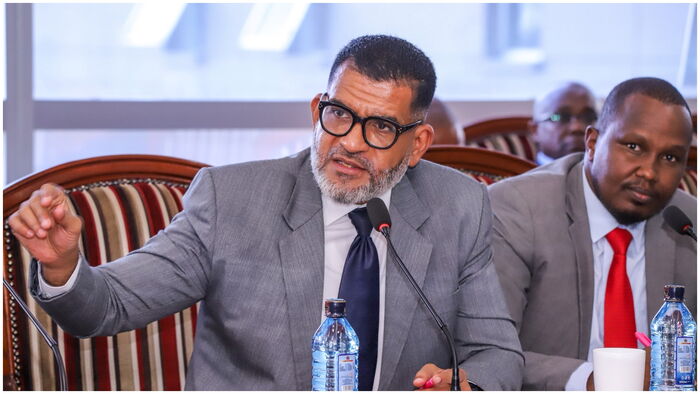Mombasa County has launched a major crackdown on landlords and individuals engaging in illegal water connections, a practice that Governor Abdulswamad Nassir says has worsened water scarcity in the region.
Speaking during a press briefing, Nassir revealed that the operation, which began three days ago, will run for the next three months across several constituencies. He warned that those found culpable will face legal action, emphasizing that the illegal siphoning and resale of water at inflated prices amounts to what he termed “treason” against residents.
“The main reason that the availability of water has gone down is because our non-revenue water is one of the highest in the country. We have had situations where people have truly been doing nothing else except illegal water connections,” Nassir said.
The crackdown is currently underway in Changamwe, Mvita, and parts of Kisauni constituencies. According to the governor, these schemes have deprived thousands of households of clean water while driving up costs for residents.
Nassir assured that alongside enforcement, the county is investing in long-term solutions to address water shortages. These include supporting the construction of the Mwache Dam, a joint project between the national government and the World Bank, which is expected to supply clean water to more than 120,000 households. The county is also repairing leaking pipes and conducting hydrological surveys to identify potential sites for deep wells.
“There is a long-term programme, such as the Mwache Dam, and as the county government, we will also look for ways to drill deep water wells within the county,” he added.
The announcement comes just days after Nairobi County residents were warned of looming water shortages. On August 17, Nairobi Water and Sewerage Company Managing Director Nahashon Muguna issued a notice citing a technical fault along the Kabete–Kibera–Lang’ata pipeline.
Areas likely to be affected include Lang’ata, Kibera, Kilimani, Lavington, Parklands, Riverside, Kileleshwa, and key institutions such as Kenyatta National Hospital and the University of Nairobi. Muguna urged residents to use stored water sparingly as technical teams work to restore supply.
The simultaneous water crises in Mombasa and Nairobi underscore the urgency of addressing Kenya’s water infrastructure challenges.

